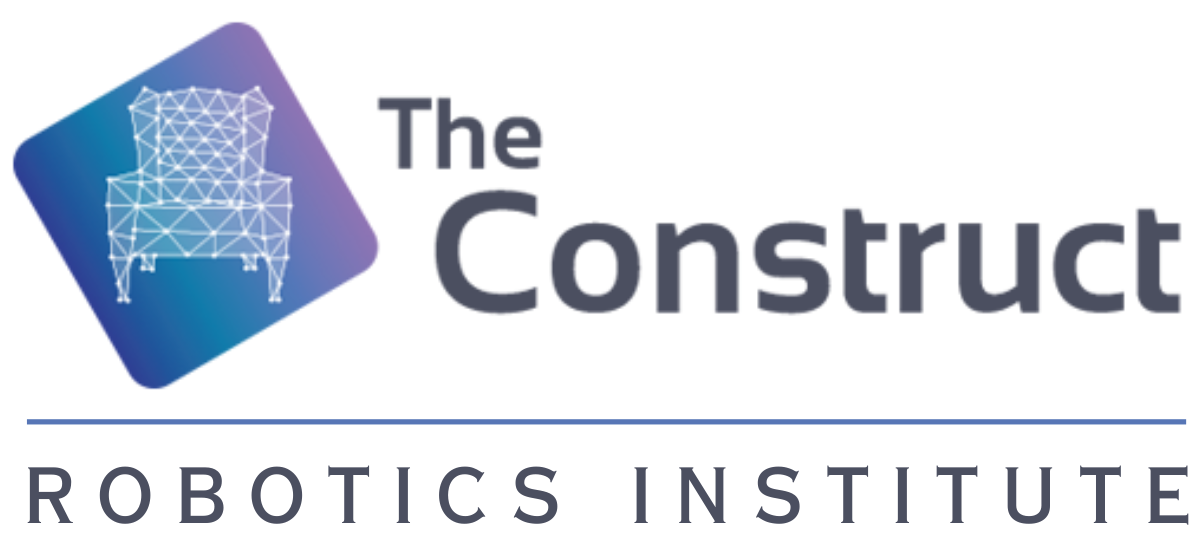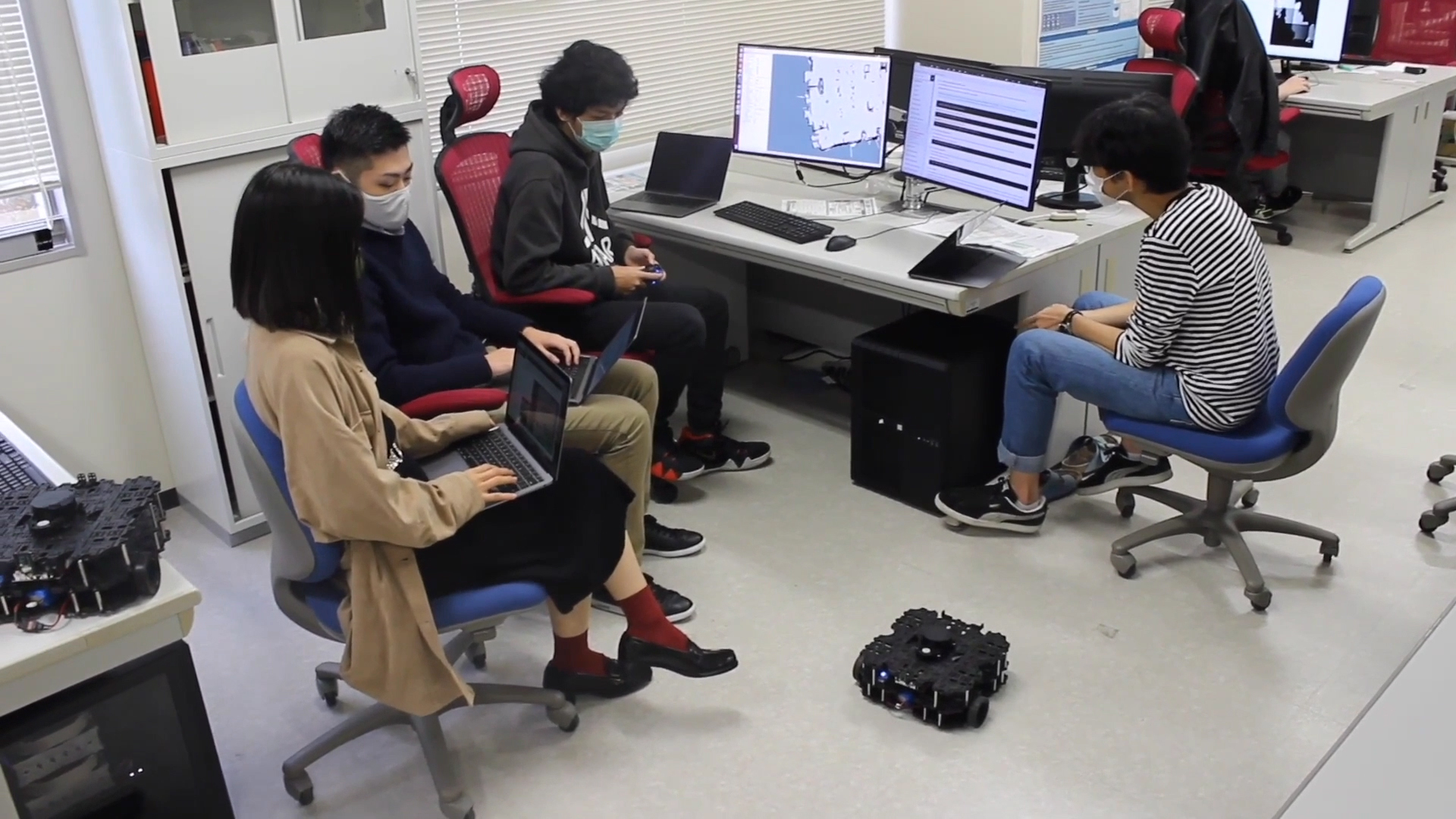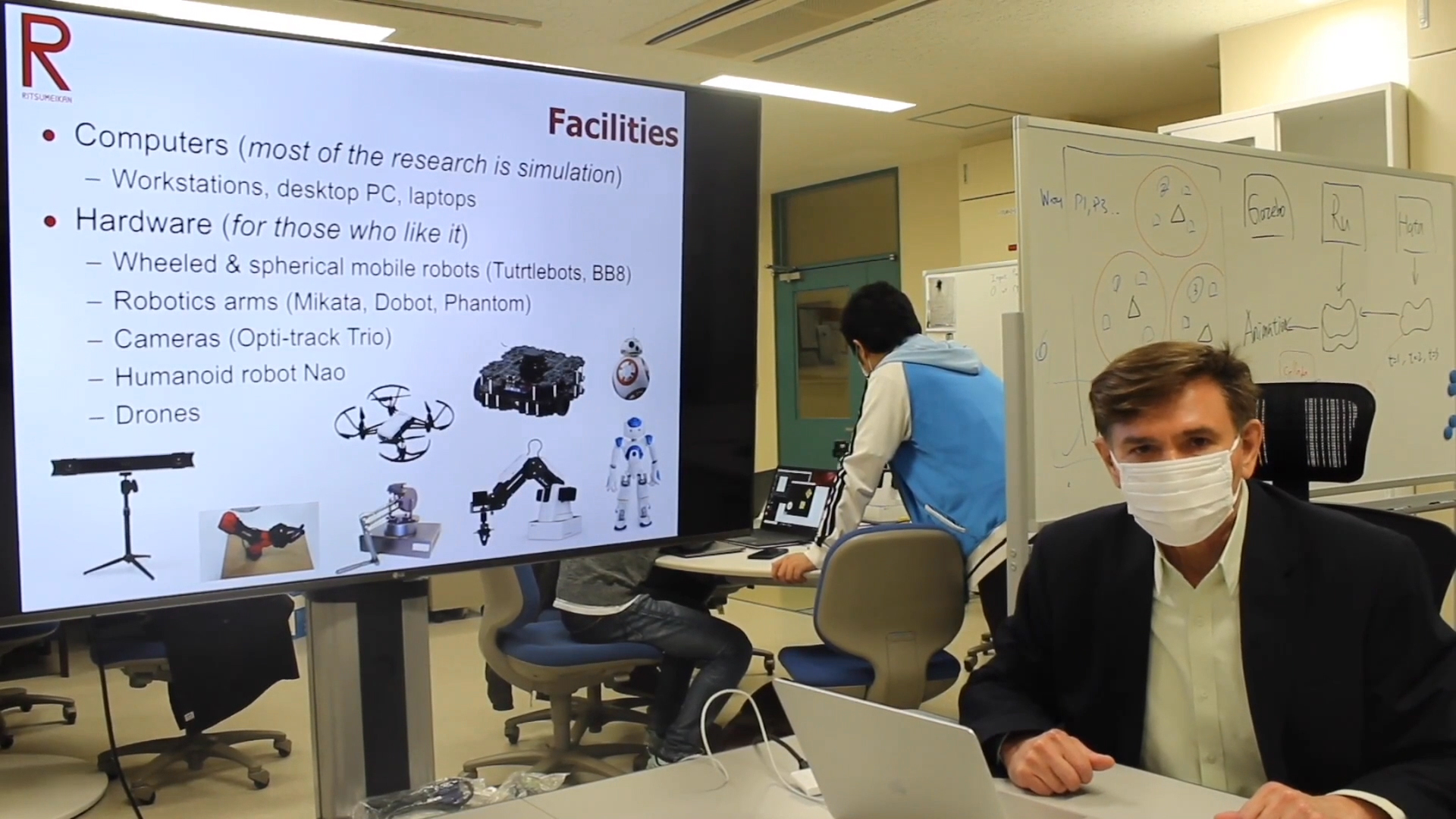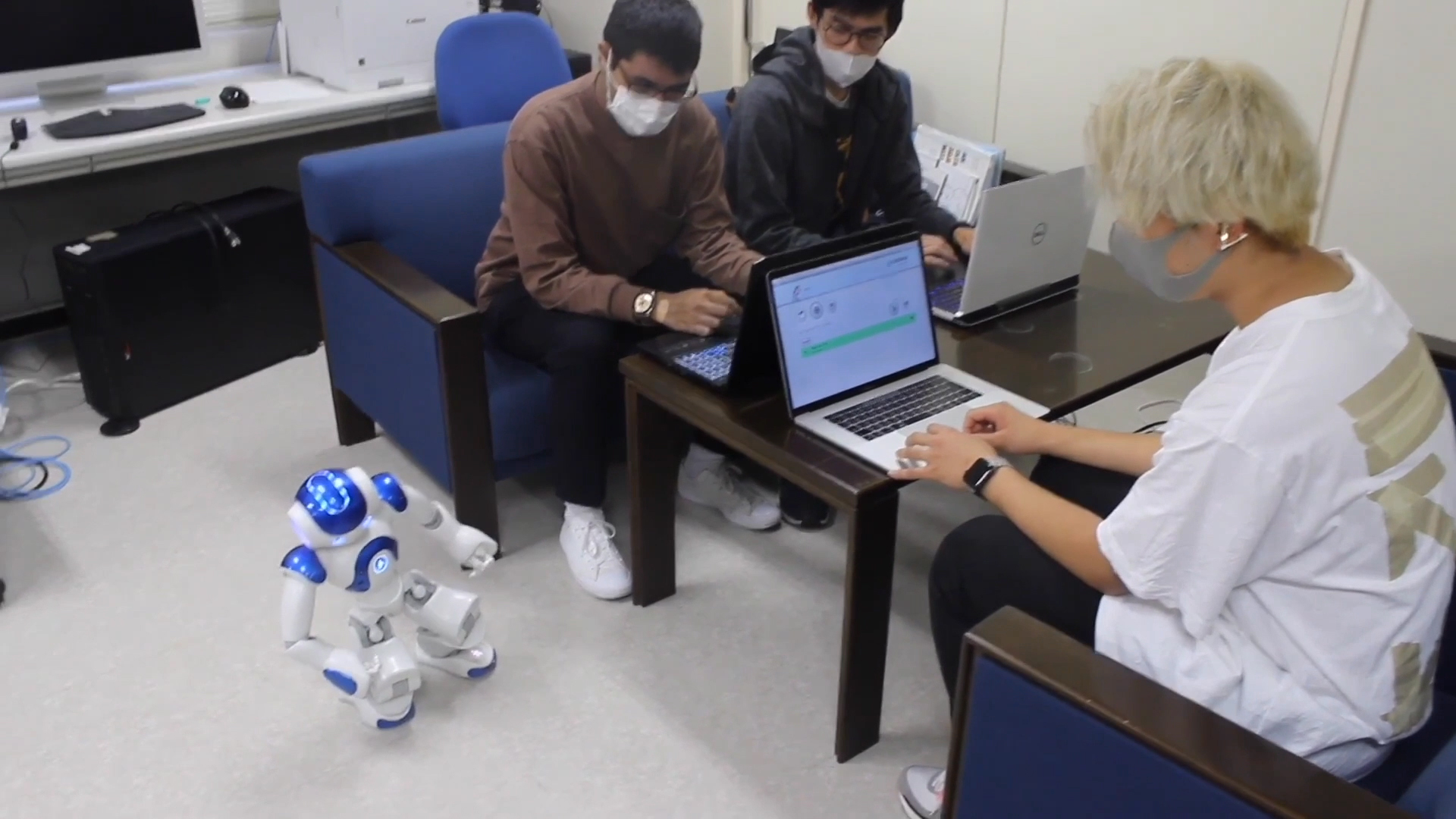CASE STUDY
A practice-oriented approach to teaching ROS at Ritsumeikan University.
#ROSto100Universites
– Case Description
The College of Information Science and Engineering of Ritsumeikan University was established in 2004, and is the one of the largest information colleges in Japan.
The ISSE (Information Systems Science and Engineering) course they provide maximizes the benefits of project-based learning – offering practical, hands-on engineering experience to match the demands of industry leaders in Japan and worldwide.
In the spring of 2020, Prof. Mikhail Svinin began to include ROS in this project-based course. In this case study, we will see how he teaches ROS in a practice-based manner and why he is teaching ROS.
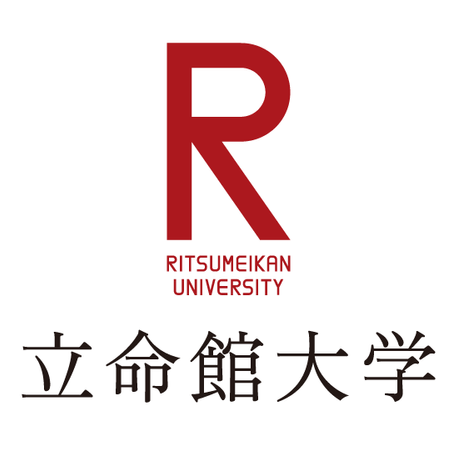
A practice-oriented approach to teaching ROS
“I hope my students will be well prepared to face and deal with practical engineering problems, be it in the industry or in academia“
– Prof. Mikhail Svinin
ISSE is a four-year program, with students joining engineering projects from their very first year of study while education is centered on project work throughout the program.
In the first year of the program, Prof. Mikhail Svinin provides students with a project-oriented course – “BB-8 Project Learning Class” – in his Robot Dynamics and Control Laboratory. This course is combined with simulated robots and The Construct’s ROS Basics (Python) course, which allows students to learn the basics of robotics.
The goal of this course is to learn how to program a ROS-based robot from scratch, with ROS occupying 80% of the course. Students work on two ROS-based robot projects, one based on the Sphero robot, and another one based on TurtleBot 3.
In the second year, after acquiring the basics of ROS, students are able to start using their ROS skills in their projects and continue learning and working on projects with other team members in the lab. Project-based learning allows students to build competence and confidence in constructing a system that works well with other people and to be part of the development process, therefore, having a much better chance of succeeding and leading other successful projects.
At the end of the third year, students are ready to launch their own robotics projects, which may be integrated with other projects (e.g., ROS plus human-computer interaction, or image processing). Students learn to bring a project from concept to reality and also how to maintain and build on previous projects and concepts. The program is designed to provide a flexible learning plan and to encourage students to develop their unique talents, and also stimulate their own innovation.
Interview
Python or C++ for teaching ROS?
Prof. Mikhail Svinin: I use Python for my class, and I think Python is more friendly for ROS & Robotics beginners.
Why are you teaching ROS?
Prof. Mikhail Svinin: Many people use ROS in Japan. I think ROS is becoming the standard of robot programming. Many companies in Japan are using ROS for their projects, like SoftBank. And we want to provide students with practical engineering experience and skills in order to match the demands of industry leaders in Japan and worldwide. ROS is one of those important skills, so we choose to use it for our robotics project-based course.

Prof. Mikhail Svinin
Expert – Robotics, Analytical Mechanics, Control Theory
Course – Information Systems Science and Engineering Course (ISSE)
Theme – Robotics, Haptics, Machine Intelligence
Mikhail Svinin received the Ph.D. degree from Saint Petersburg Informatics and Automation Institute, Saint Petersburg, Russia, and conducted postdoctoral studies at the Institute of Automatic Control, Darmstadt Technical University, Germany, as an Alexander von Humboldt Research Fellow, and at Tohoku University, Japan, as a JSPS post-doctoral fellow.
Before joining the College of Information Science and Engineering, Ritsumeikan University, he was with the Department of Mechanical Engineering, Kyushu University. His research interests include robotics, control theory, analytical mechanics, modeling of human movements, and machine learning. Dr. Svinin is a member of the Institute of Electrical and Electronic Engineers (IEEE) and the Robotics Society of Japan (RSJ).
